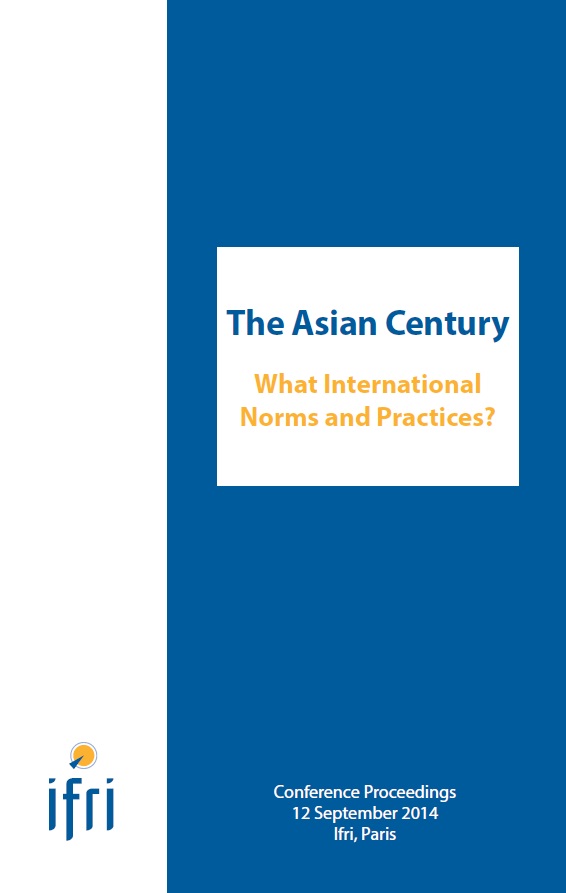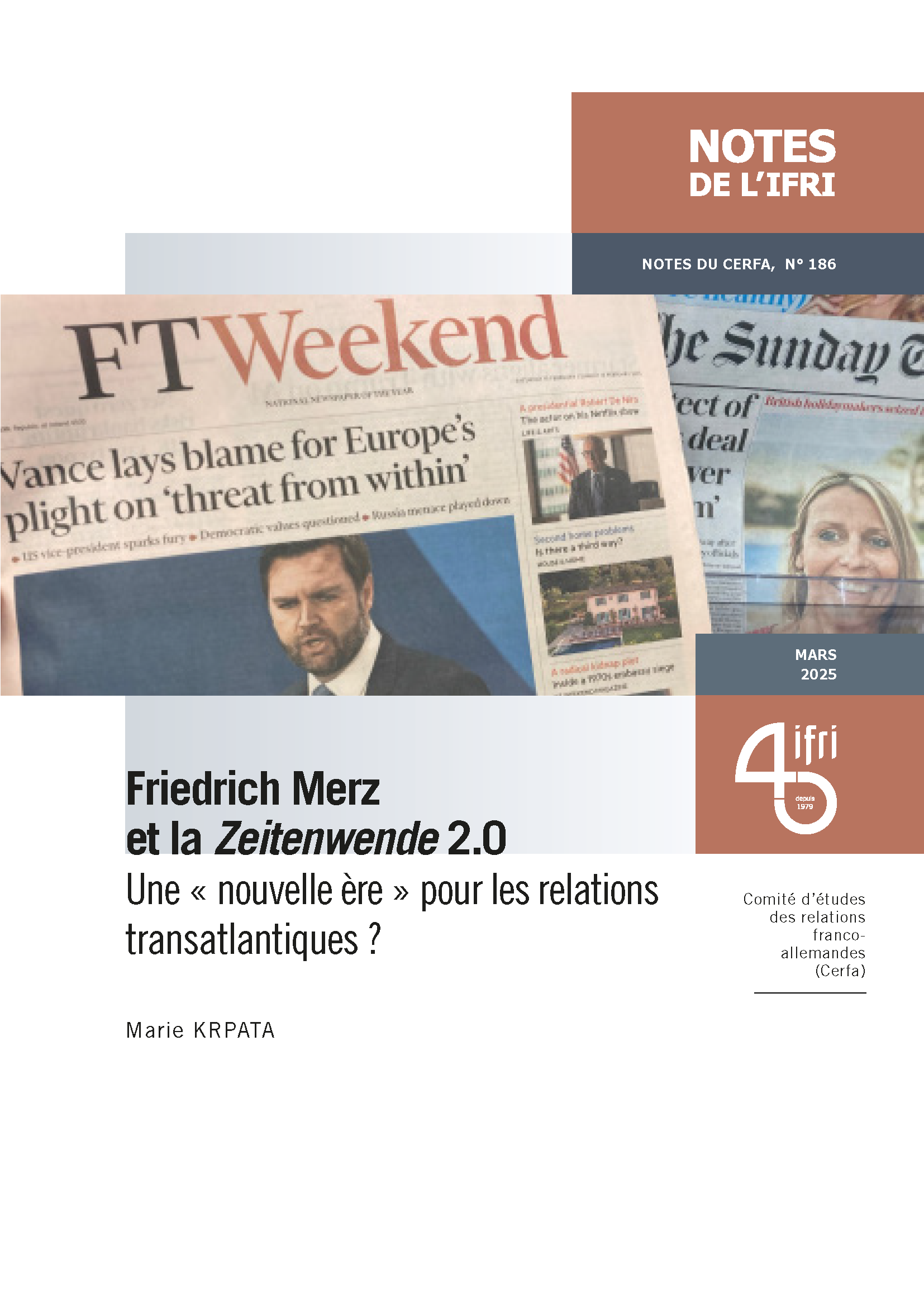
Informations pratiques
Thématiques et régions
Centres et programmes liés

The rise of China and the responses formulated by its neighbors are key elements shaping the security environment in East Asia. China’s growing “assertiveness” since 2008, particularly in maritime East Asia, seems to have been further strengthened under the leadership of President Xi Jinping. Meanwhile, China’s relations with a number of neighbors, in particular Japan, Vietnam and the Philippines, have sharply deteriorated. On the Japanese side, Prime Minister Shinzo Abe has repeatedly called for his country to take a "greater and more proactive role" in security matters in the region. Following Abe’s election win in December 2014, in which his Liberal Democratic Party and its junior coalition partner Komeito have retained their two-thirds majority in the Lower House, the Prime Minister has restated his party’s goal of reviewing the country’s pacifist constitution in order to expand the role of Japan’s Self-Defense Forces. Such actions will be carefully watched by other countries in the region, in particular China and South Korea, especially with the added symbolism that the year 2015 carries, marking the 70th anniversary of the end of World War II.
Yasuhiro Matsuda will weigh in on Sino-Japanese relations and the implications of China’s rise for security in East Asia, ultimately identifying a number of the implications for European nations. Dr. Matsuda is a professor of international politics at the University of Tokyo’s Institute for Advanced Studies on Asia, which he joined in 2008. He received his Ph.D. in law from Graduate School of Law at Keio University and spent sixteen years in the National Institute for Defense Studies (NIDS) of the Japan Defense Agency (later, Ministry of Defense), as an assistant and a senior research fellow. He specializes in the political and diplomatic history of Asia, politics and foreign relations in the PRC and Taiwan, Cross-Strait relations, and Japan’s foreign and security policies. He was a member of the Council on Security and Defense Capability in the New Era, the advisory group of the Prime Minister in 2010 and was the winner of the seventh Yasuhiro Nakasone Award of Excellence in 2011.
Discussants: Alice Ekman, Research fellow, Center for Asian Studies, Ifri and Céline Pajon, Research fellow, Center for Asian Studies
Chair: Françoise Nicolas, Director, Center for Asian Studies, Ifri
Intervenants
En savoir plus

The Asian Century: What International Norms and Practices? Conference Proceedings, 12 September 2014
L’Asie est une plaque tournante de l’activité économique mondiale et le théâtre d’enjeux de sécurité parmi les plus pressants de notre temps. Signe de l’importance actuelle de l’Asie dans les affaires internationales, et sans doute pour les décennies à venir : nombreux sont ceux qui qualifient le XXIème siècle de « siècle asiatique ».
Nationalismes en Chine et au Japon et implications pour les relations bilatérales
Le facteur nationaliste apparaît comme une composante importante des frictions grandissantes opposant la Chine et le Japon.

Le Japon d'Abe face à la Chine de Xi : de la paix froide à la guerre chaude ?
Les relations sino-japonaises se sont dégradées depuis l’arrivée au pouvoir de Shinzo Abe et de Xi Jinping.

Asie-Pacifique : la priorité de la politique étrangère chinoise
La Chine est de plus en plus active dans la région Asie-Pacifique qui constitue le cœur de sa politique étrangère.
Sujets liés
Autres événements

Allemagne : un nouveau gouvernement face au changement d’époque
L’Allemagne se prépare à un changement de gouvernement imminent, et les négociations de coalition laissent présager des changements de politique significatifs.

Les nouveaux enjeux de la sécurité européenne en Ukraine et dans la région de la mer Noire
La sécurité en Europe a été massivement mise à l’épreuve en 2022 avec l’invasion de l’Ukraine par la Fédération de Russie. Trois ans plus tard, l’avenir de la sécurité européenne reste incertain dans cette partie du continent. L’Ukraine est toujours en guerre et l’insécurité régionale sur les rives de la mer Noire a atteint un nouveau point critique.

Trump 2 après 100 jours : changer l’ordre économique mondial « par la force » ?
Un brief de 30 minutes autour de Sébastien Jean, directeur associé de l'initiative géoéconomie et géofinance de l'Ifri.











